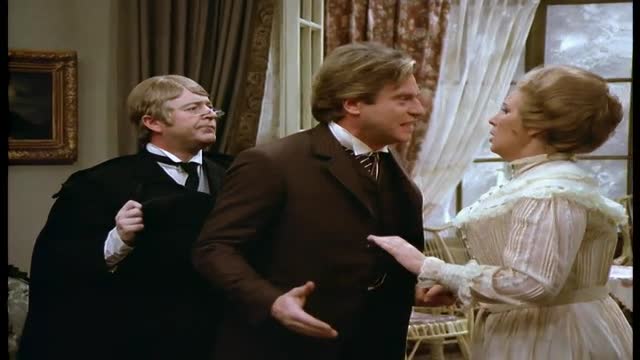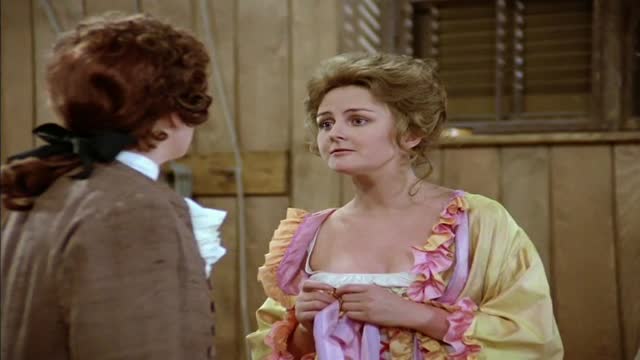Having studied singing at the Vienna Academy of Music with Theodor Leirhammer and Hans Duhan, Erich Kunz made his debut as Osmin / Die Entführung aus dem Serail at Troppau, in Silesia, in 1933 (some suggest this was 1935). He sang in the chorus at the Glyndebourne Festival during the summer of 1936, and for one performance replaced the director Carl Ebert in the speaking part of the Pasha Selim, again in Die Entfuhrung aus dem Serail. After stints with the Plauen and Breslau Operas he joined the Vienna State Opera, with which he was to be closely associated throughout his career, in 1940.
At the Salzburg Festival Kunz first appeared in 1941 as Masetto / Don Giovanni (also in 1942). He returned frequently, as Figaro / Le nozze di Figaro (1946–1947, 1953–1958, 1960); Guglielmo / Così fan tutte (1947, 1953–1957); Leporello / Don Giovanni (1950); Papageno / Die Zauberflöte (1950–1952, 1955); Harlequin / Ariadne auf Naxos (1955); Faninal / Der Rosenkavalier (1960) and as one of the Jews in Salome (1977–1978). At Bayreuth Kunz became the youngest artist ever to appear in a major role at the Festival when he sang Beckmesser in Die Meistersinger von Nürnberg in 1943. He returned in the same role when Bayreuth reopened in 1951.
The end of World War II saw Kunz’s career blossom internationally. He took the parts of Leporello, Figaro and Guglielmo with the Vienna State Opera when it visited the Royal Opera House, London in 1947; sang Guglielmo with the Glyndebourne company at the Edinburgh Festival in 1948 and at Glyndebourne itself in 1950; repeated his Beckmesser at La Scala, Milan; and appeared in Florence, Rome, Naples, Paris, Brussels, Budapest and Buenos Aires.
His debut at the Metropolitan Opera, New York came in the autumn of 1952 as Leporello. During the same season Kunz also sang Beckmesser and Faninal and returned during the 1953–1954 season for Figaro and Leporello.
With the Vienna State Opera Kunz remained active as a principal until the mid-1970s, creating the part of the President’s Valet in the 1976 premiere of Kabale und Liebe, Gottfried von Einem’s version of the Schiller play; and as late as the early 1980s appeared in the speaking role of the Haushofmeister / Ariadne auf Naxos (1982) and as Benoit / La Bohème (1983).
With his velvety voice, Viennese charm and comic virtuosity, Kunz was a natural operatic performer. He recorded extensively, both in his chosen repertoire and in the famous EMI series of operettas with Elisabeth Schwarzkopf, as well as in many discs of traditional popular Viennese songs.
© Naxos Rights International Ltd. — David Patmore (A–Z of Singers, Naxos 8.558097-100).
| Title | |
| STRAUSS II, J.: Fledermaus (Die) (Studio Production, 1972) | |

|
STRAUSS II, J.: Fledermaus (Die) (Studio Production, 1972)
Composer:
Strauss II, Johann
Artists:
Bohm, Karl -- Holecek, Heinz -- Holm, Renate -- Janowitz, Gundula -- Kmennt, Waldemar -- Kuchar, Erich -- Kunz, Erich -- Lukan, Sylvia -- Schenk, Otto -- Vienna Philharmonic Orchestra -- Vienna State Opera Chorus -- Wachter, Eberhard -- Windgassen, Wolfgang
Label/Producer: UNITEL |
| STRAUSS, R.: Ariadne auf Naxos (Bohm) (1978) | |

|
STRAUSS, R.: Ariadne auf Naxos (Bohm) (1978)
Composer:
Strauss, Richard
Artists:
Berry, Walter -- Bohm, Karl -- Equiluz, Kurt -- Gall, Axelle -- Groote, Hilde de -- Gruberova, Edita -- Janowitz, Gundula -- Jungwirth, Manfred -- Kollo, Rene -- Kunz, Erich -- McDaniel, Barry -- Miljakovic, Olivera -- Schmidt, Trudeliese -- Vienna Philharmonic Orchestra -- Zednik, Heinz
Label/Producer: UNITEL |
